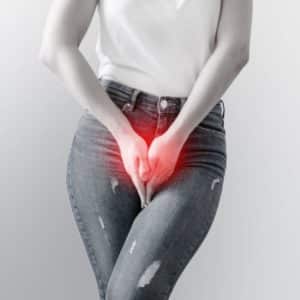Are You Getting the Right Help for Urinary Incontinence?

Symptoms of Urinary Incontinence
It’s easy to assume that urinary incontinence causes a single symptom: accidental urine leakage. This is true in the bigger picture but there are nuances depending on the type of urinary incontinence a woman has.
- A woman with stress urinary incontinence will accidentally leak urine when she tries to exercise or when she laughs, coughs, sneezes, or performs any activity that may exert pressure on the abdomen.
- A woman with overflow incontinence may experience frequent dribbling of small amounts of urine. This happens because the bladder does not fully empty during urination.
- A woman with urge incontinence will feel a strong and sudden urge to urinate. She will leak urine before she makes it to the bathroom.
- Functional incontinence occurs when a person has a mental or physical impairment.
- A woman may also have mixed incontinence, which carries symptoms of more than one of the types we’ve mentioned here.
Common Approaches to Urinary Incontinence
Researchers at the University of Michigan Institute for Healthcare Policy and Innovation conducted a poll of over 1, 000 women aged 50 to 80. They discovered that:
- Less than half of all women who were living with urinary incontinence had seen a doctor to discuss their symptoms.
- Over 40% of women described their urinary leakage as a major problem.
- More than half of the women over age 65 had experienced urinary incontinence.
- 43% of women aged 50 to 65 had experienced symptoms.
- More than half of the women experiencing urinary incontinence managed their symptoms by wearing special pads or undergarments.
- 15% were strategic in how they dressed so accidental leaks could be hidden.
A Urologist Can Help
Urinary incontinence is not a simple matter of aging, vaginal atrophy, muscle weakness or weight. There may be several factors contributing to urine leakage. A urologist can help uncover the cause of urinary incontinence and find the right solution to improve quality of life. Learn more about treatments for urinary incontinence. Call our Chattanooga office at (423) 778-5910.

